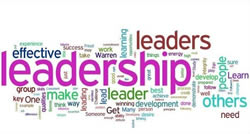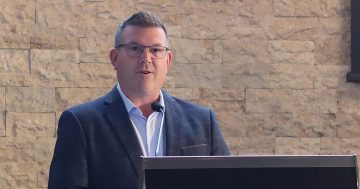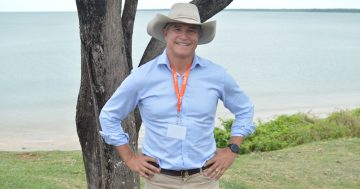Andrew Hackett* says the qualities that make a good leader are no different from those we should be practising in our everyday lives.
 Nearly everyone wants to lead, but very few are natural born leaders.
Nearly everyone wants to lead, but very few are natural born leaders.
Most people who want to lead effectively will need to begin by developing the skills to do so.
Sadly, many leaders don’t get the time to pick up these skills before they are thrust into a leadership role.
The good news is that if you find yourself in this situation; the skills you need are not complex.
They are things you already know how to do — you just need to use them consistently.
The best leaders are people we want to emulate.
They inspire us and make us feel a part of something bigger than ourselves.
They shine a light on a path they do not fear to tread with us.
To be a great leader is about developing the personal traits that make others want to emulate us.
These are the traits of a great leader:
They show appreciation:
Appreciation must be sincere and delivered at the right time.
Great leaders acknowledge contributions as they arise; they explain the impact of the contribution and give credit to the people responsible for it.
They know that as their team becomes more confident and happier, it will achieve more.
They are confident:
Confidence is not arrogance.
Good leaders do not fear being challenged as arrogant leaders do. They welcome it.
They have the confidence to know that their ideas can be improved and that they can build a better future with their people rather than by overruling them.
They are compassionate:
Business, despite the endless stream of business books claiming otherwise, is not war.
Compassion is not a weakness in modern life.
It allows the leader to think about their team and its needs and ask themselves: “How can we do this so that it brings the biggest benefits to the largest group of people?”
They are courageous:
Modern corporate leadership is always at its worst in cowardice.
It’s a place of fear and anger.
Good leaders are unafraid to voice the unpopular, to tackle the hard issues, and recognise that it is through adversity that strength and character are developed.
If you can’t take risks in a constructive, courageous manner you can’t expect others to.
They are diligent:
The leaders and managers that everyone resents are the ones who do no work.
We’ve all had to endure their ‘leadership’ at some point.
Leadership requires setting an example and if you want others to give everything they’ve got, you’ve got to give your all too, even when you’d rather not.
They are impartial:
It’s hard to be fair when you manage a team, just like it’s hard to be fair when you’re a parent.
You’re going to like some people more than others, that’s human.
Being impartial when you lead is a crucial skill.
You need to reward and motivate people for what they do for the greater business and not for being your best friend.
They can flex when they need to:
Change is why we need leaders.
If everything stayed the same all the time we could simply show people how to do something once and let them continue to do it forever.
Leaders must be flexible; they must be able to solve problems without breaking.
They must flex with the best.
They are honest:
Honesty is in short supply in a modern world where our every move is visible — but telling the truth and acting with integrity is a leader’s greatest value.
Would you follow a liar? We wouldn’t.
The good news for leaders and would-be leaders is that these are all traits you possess already.
You just need to exercise them consistently.
Personal growth comes from acting in a congruent fashion over a period of time.
You know that you can be appreciative, you are confident in what you know and do.
You can be compassionate and courageous; diligence is hard to practice but not hard to come by; impartiality means thinking a little before you act, and flexibility and honesty ought to be second nature.
That means we can all be great leaders if we focus on what matters.
*Andrew Hackett is a self-employed personal redevelopment coach, author, transformational trainer, commercial management consultant and strategic negotiator based in Canberra. He can be contacted at linkedin.com.
This article first appeared on LinkedIn.











